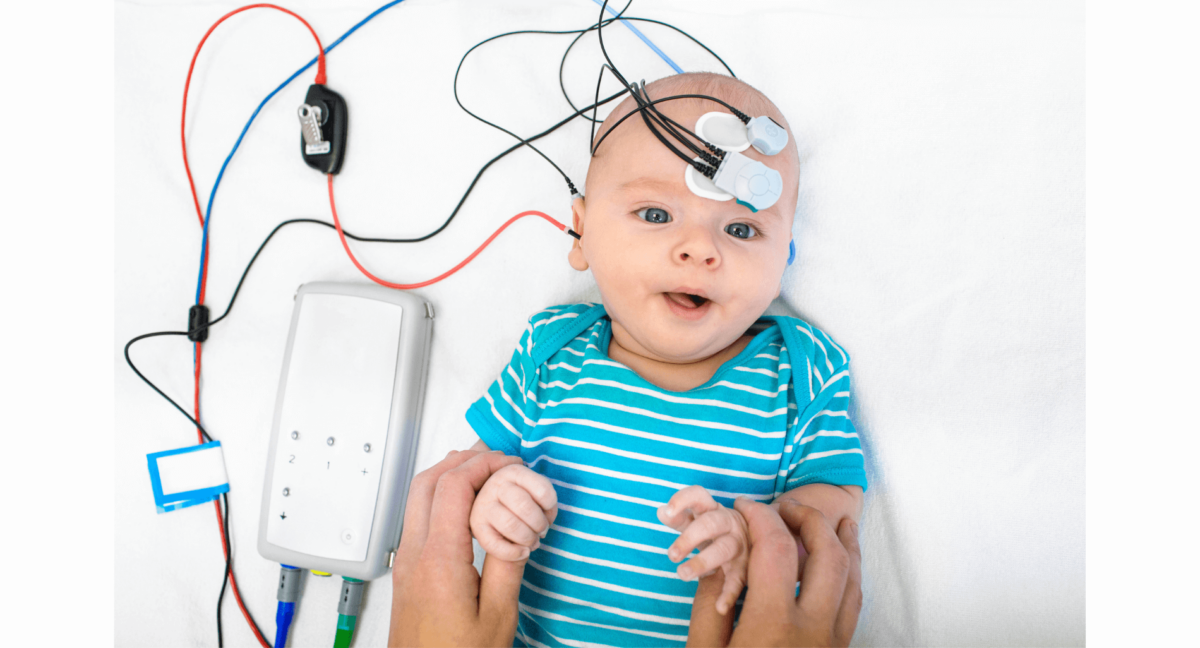Hearing is crucial for a child’s development, enabling them to learn language, communicate, and interact with the world around them. If you think your infant might have hearing loss, early detection, and intervention can make a huge difference in their development. Here are the signs and symptoms of hearing loss in infants.
Family History of Hearing Loss
A family history of hearing loss can increase the likelihood of a child being born with or developing hearing loss. If there is a history of hearing loss in your family, it’s important to be vigilant and proactive in monitoring your child’s auditory development. Regular hearing screenings and evaluations can help detect any potential hearing loss early on, allowing for timely intervention and support.
Lack of Startling or Reacting to Loud Sounds
One of the earliest signs of hearing loss in infants is a lack of startling or reaction to loud noises. Typically, newborns have a natural reflex to startle or turn their heads in response to sudden sounds. However, infants with hearing loss may not exhibit this reflex, indicating a potential impairment in their auditory system.
Difficulty Localizing Sounds
Infants with normal hearing can typically localize the source of a sound by turning their heads or orienting towards the sound. However, infants with hearing loss may have difficulty localizing sounds accurately, leading to delays in developing spatial awareness and auditory discrimination skills. Observing how your child responds to sounds in different directions can provide valuable insights into their auditory abilities.
Inattentiveness or Lack of Response to Environmental Sounds
Infants with hearing loss may appear inattentive or unresponsive to environmental sounds, such as a doorbell ringing or a phone ringing. While it’s normal for infants to occasionally ignore sounds when they’re engaged in other activities, persistent inattentiveness or lack of response to auditory stimuli could signal potential hearing difficulties.
Delayed Speech and Language Development
Hearing plays a crucial role in speech and language development, with infants relying on auditory input to learn and mimic sounds. Delayed speech and language milestones, such as babbling, imitating sounds, and responding to their name, can be indicative of hearing loss in infants. Parents should monitor their child’s progress and consult with a healthcare professional if they have concerns about their speech and language development.
Changes in Behavior or Social Interaction
Hearing loss can impact a child’s social and emotional development, leading to changes in behavior and interaction patterns. Infants with hearing loss may exhibit increased irritability, difficulty sleeping, or withdrawal from social interactions. Paying attention to changes in your child’s behavior and mood can provide important clues about their auditory health.
Failed Newborn Hearing Screening Tests
Many countries have implemented universal newborn hearing screening programs to identify infants at risk for hearing loss shortly after birth. If your infant fails a newborn hearing screening test, it’s essential to follow up with additional diagnostic testing and evaluation by a hearing health specialist. Early identification of hearing loss allows for prompt intervention and support, improving your child’s auditory development and overall well-being.
Monitoring Milestones and Seeking Professional Evaluation
Monitoring your infant’s developmental milestones is crucial for identifying potential signs of hearing loss. Regularly tracking milestones such as responding to sound, babbling, and turning toward voices can help detect any delays or abnormalities in auditory development. If you notice any concerns or deviations from typical developmental patterns, it’s essential to seek a professional evaluation right away. Early intervention is key to addressing hearing loss effectively and maximizing your child’s potential for auditory and overall development.
Visit Us for Your Family’s Hearing Needs
Recognizing the signs of hearing loss in infants is important for their overall development. Watch for these signs of hearing loss in your infant and monitor your little one for any changes in hearing health. By being proactive, you can provide them with the support and resources they need to thrive. If you have any concerns about your child’s hearing, don’t hesitate to reach out to us for ongoing guidance and support.

